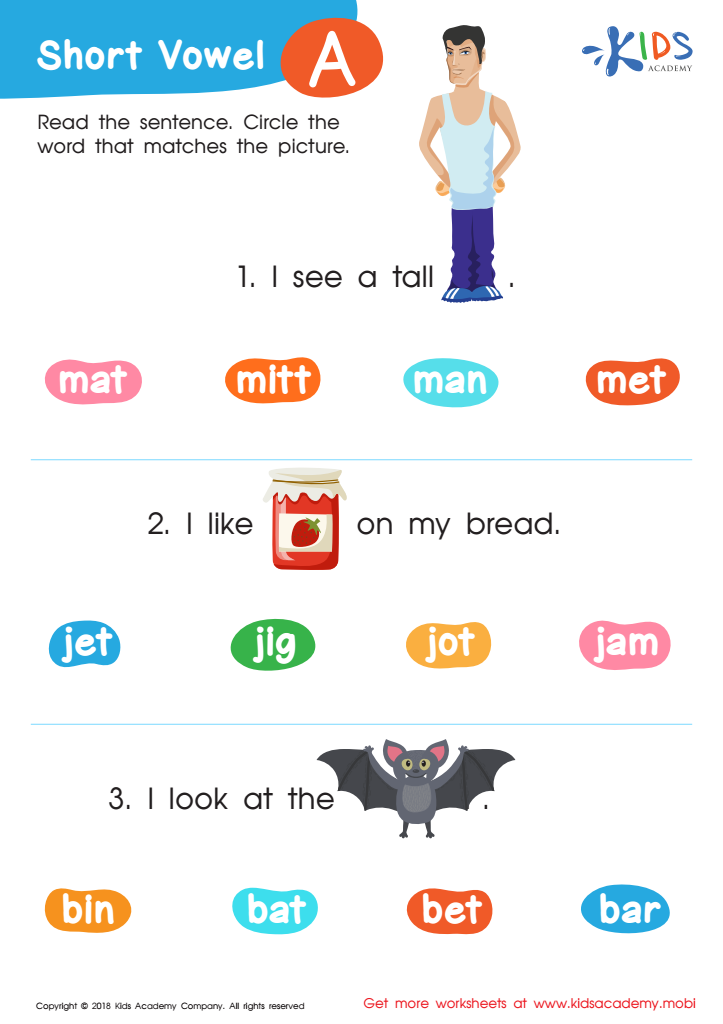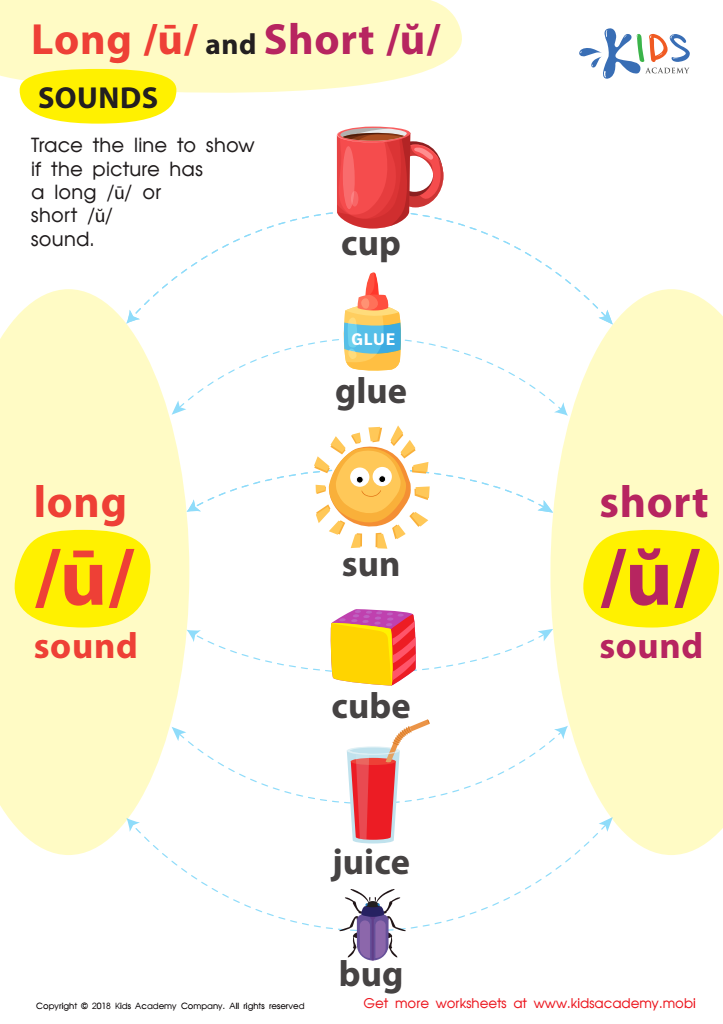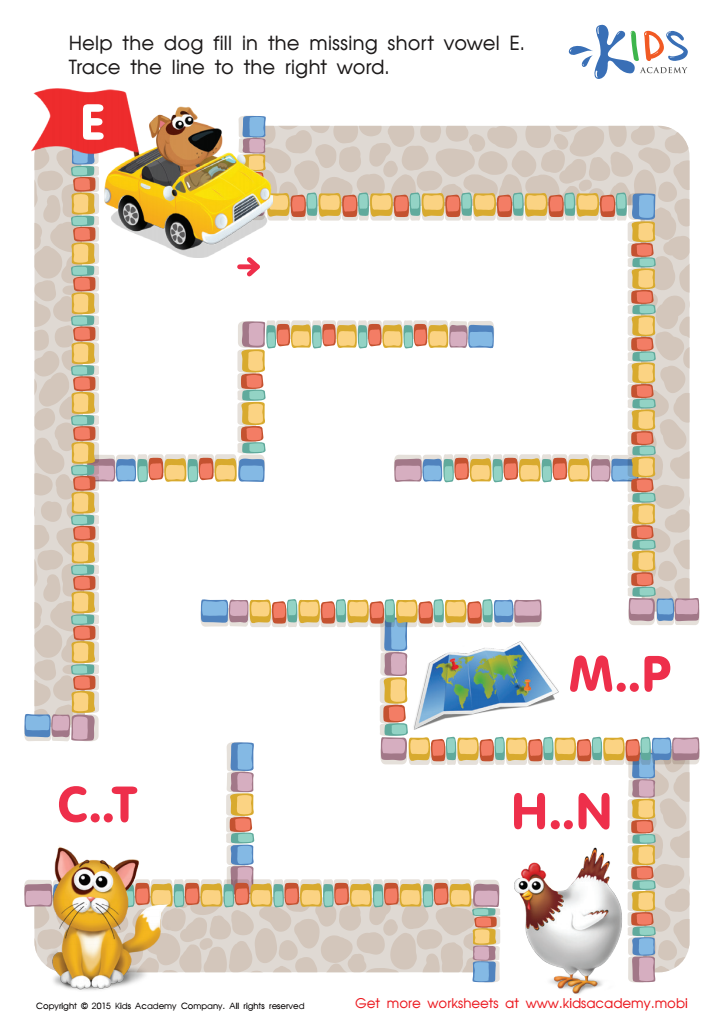Vowel Recognition Letter Recognition Worksheets for Ages 6-8
5 filtered results
-
From - To
Our Vowel Recognition Letter Recognition Worksheets for Ages 6-8 are thoughtfully designed to make learning vowels engaging and effective for young pupils. These printable resources help children master recognizing, identifying, and distinguishing vowels while enhancing their reading skills. Suitable for ages 6-8, our worksheets use fun activities, colorful graphics, and age-appropriate exercises to keep kids motivated and excited about learning. Perfect for the classroom or additional home practice, this collection supports early literacy development by reinforcing the fundamentals of vowel sounds and letter recognition. Boost your child's confidence and proficiency in a playful, educational way with our proven worksheets.


Short Vowel /a/ Worksheet


Short Vowels /e/, /i/, and /u/ Worksheet


Reading: Long U and Short U Sounds Worksheet


Long Vowel Maze /o/ and /i/ Worksheet


Short Vowel Sound E Worksheet
Vowel recognition and letter recognition are fundamental components of early literacy that parents and teachers should prioritize for Ages 6-8. Mastery of these skills forms the foundation for reading and writing, which are critical to a child's academic success and overall intellectual development.
First, vowels are the building blocks of words. Understanding vowels helps children decode words in reading and construct them in writing. Since vowels appear in nearly every word in the English language, recognizing and distinguishing them enhances a child’s ability to read fluently and comprehend text effectively.
Letter recognition is equally crucial as it involves knowing the names and sounds of letters, which is essential for phonemic awareness—the ability to hear, identify, and manipulate phonemes, the smallest units of sound. Strong phonemic awareness contributes to better spelling, reading proficiency, and overall language development.
Moreover, being proficient in these foundational skills boosts a child's confidence and enthusiasm for learning. Early difficulties in these areas can lead to frustration and a lack of interest in reading, hindering subsequent academic achievements. By focusing on vowel and letter recognition at ages 6-8, parents and teachers set the stage for lifelong learning and cognitive development, ensuring children have the necessary tools to navigate more complex literacy challenges ahead.
 Assign to My Students
Assign to My Students















